
‘Long Covid has taken away my ability to eat food or urinate - I don’t recognise myself anymore’
A young woman whose health “deteriorated rapidly” after being diagnosed with long Covid and suffering a liver bleed is now in a wheelchair, feeds herself through a tube in her chest and has been unable to urinate in three years. Abigail Snowball, 29, was told she suffered from a rare condition known as Fowler’s Syndrome a few months after she was diagnosed with long Covid in July 2020 and her bladder stopped working. The social worker, from Northumberland, says she was “never sick” and enjoyed long runs before testing positive for coronavirus in early 2020 and feeling a sharp pain under her ribs which scans showed was a bleed on her liver. Abigail had not fully recovered from the virus and since the diagnosis, her health has gone from bad to worse, to the point where she has not been able to urinate in three years. She now depends on her husband Mark, 34, to carry her to the bathroom so she can empty her bladder, which can take up to four hours, and has not been able to enjoy a mouthful of food for nearly a year. “I had never really been ill before,” Abigail told PA Real Life. “As a child, I was always really lucky and never poorly. I look back at pictures from before Covid and I don’t even recognise myself.” Abigail had completed a 20-mile race, the Run Northumberland BIG 20, just a week before testing positive for Covid and having to quarantine away from Mark, who works in maintenance for Nissan. “It was very much at the start of the pandemic, back at the time when there weren’t any vaccines or much testing,” she said. “It was just tiredness like I’ve never felt before in my entire life. I remember having a cup of tea and struggling to lift the mug up.” Like many other people’s experience of catching Covid, Abigail’s health improved over the next 10 days. “I did get better, but I never fully recovered,” she said. But a couple of months later, while visiting her parents, Jane and Ray Cresswell, in Cornwall on holiday, she suddenly began feeling a sharp pain under her ribs. “It was a really strange location to have pain,” she added. She visited the GP a week later and was admitted to Northumbria Specialist Emergency Care Hospital (NSECH) in July 2020, where scans revealed Abigail had suffered a bleed on her liver. “That’s when they diagnosed me with long Covid,” she said. “There was no other explanation, because they tested for blood disorders and carried out a scan. “They asked me if I had a fall or accident, but there was literally nothing.” Abigail was recovering from her liver bleed in hospital late one evening when a nurse asked when the last time she urinated was. “I actually thought, ‘god, it wasn’t since this morning’,” she said. “From that point, my bladder never regained any function. That was really the start of my health declining quickly.” Doctors hoped her bladder block was simply a result of the liver “trauma” and that she would be on the mend soon. But, sadly, this was not the case. A few months later, Abigail was diagnosed with a rare condition called Fowler’s Syndrome, which causes women to have problems passing urine. Abigail’s condition has deteriorated over the past few weeks and she is now losing weight rapidly. “I am now sleeping on the sofa downstairs and my husband Mark is having to carry me to the toilet and back again,” she said. “We can spend up to four hours at a time trying to drain my bladder, and the pain is just unbearable. “I went from running 20 miles to using a wheelchair. You don’t realise how inaccessible the world is until you are in that position.” Since the diagnosis, Abigail has spent more than 350 days in hospital and undergone 12 surgeries, including one in October 2021 to try and reconstruct her bladder. To make matters worse, she developed intestinal failure last year, which means she can no longer eat food. “I haven’t eaten anything in a year now,” she said. Instead, she is fed through TPN (total parenteral nutrition), a tube in her chest which delivers nutrients directly into the blood stream. Abigail and Mark, who married earlier this year in May, both received close to six months of training on how to perform the feeding procedure given there is a high risk of infection. “We had never even heard of that – being fed through a line into your heart,” she said. Abigail has been told by doctors that her liver bleed was “extremely likely” to have been caused by Covid. While Covid is known to harm the lungs, it has also been found to affect other organs, including the heart, liver and kidneys, but wider research is needed to better understand its long-term effects. Liver problems are common among patients with Covid-19, according to a study carried out by researchers at Oxford University and published in the peer-reviewed journal Hepatology Communications. Abigail, whose condition is considered “severe”, is hoping to receive specialist treatment in London, known as bladder Botox, which involves injecting Botox into the bladder every three to nine months, but there is no guarantee this will work. “Because of how severe and complex my case is, we’ve exhausted all our options here and the doctors are saying that I need to see the specialists in London,” she said. “Removing my bladder completely remains on the cards, but it’s incredibly high risk because of my intestinal problems. “There is no cure for Fowler’s, so it’s about managing it in the best way possible.” The combination of health conditions has left Abigail unable to perform everyday tasks. “It’s funny because the things I want to be able to do are so normal,” she said. “Just being able to wake up, take the dog for a walk and go to work. “Things that in the past, I completely took for granted.” To help cover the costs, Abigail’s friend Emma Holt has set up a GoFundMe which has received thousands of pounds in donations. “We never imagined in our wildest dreams that we would raise the amount of money that we have already,” she said. “It’s the one thing that really keeps us going, when things are really difficult. “Knowing that we have so many people behind us and supporting us is amazing.” Fowler’s Syndrome is most often caused by infection or following surgery or trauma, but a link to long Covid has yet to be established and more research is needed. Dani Coombe, CEO, Fowler’s Syndrome UK said: “It’s too early to say if long Covid is a trigger for Fowler’s syndrome; we haven’t seen an increase in Fowler’s and retention post-Covid yet, and there is no indicator that urinary retention gets worse. “Our research into what patients believe triggered their urinary retention shows that infection is the most common trigger at 57 per cent, followed by surgery in 32 per cent of patients and trauma at 19 per cent. “It would be noteworthy to see in coming years if there is an increase in women with Fowler’s because of the trauma of Covid-19.” Read More Fake meat is dying, but that shouldn’t mean the end of veganism What I gained (and lost) from walking 10,000 steps a day for five months Woman behind ‘not real’ plane tirade identified as marketing executive with $2m home Charity boss speaks out over ‘traumatic’ encounter with royal aide Ukraine war’s heaviest fight rages in east - follow live
1970-01-01 08:00
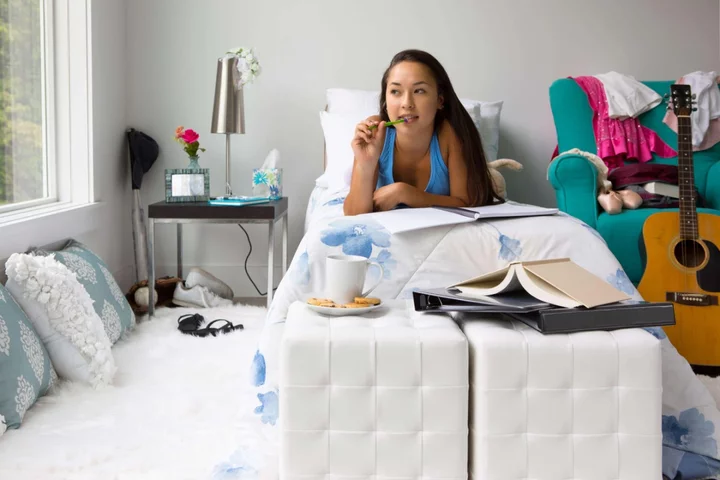
6 survival tips for parents of live-at-home university students
A fifth of new students plan to live at home while studying at university, according to new research. But while living with their parents will undoubtedly be cheaper, it could create problems if teenagers try to live a typical student lifestyle in their mum and dad’s house – so experts advise ground rules. A new UCL and Sutton Trust study of more than 11,000 Year 13 students in England, who have either applied or plan to apply to university, found 20% had decided to live at home during term time if they got into university (14% had not yet decided). Nearly a fifth (18%) said the main reason was because they couldn’t afford to live away from home, while 46% said they wanted to be near their families. Gill Hines, co-author of Later! A Guide to Parenting a Young Adult (Piatkus), says living at home while doing further education is an increasing trend. “There’s many, many more kids living at home when they go to university – universities are reporting a lot more students are local people. But there can be problems, particularly with the social side of things,” she says. To help life with an adult student living at home remain as harmonious as possible, Hines says it’s vital for students and parents to discuss exactly what the house rules are well before term starts. “Sit down with them and talk about how things are going to be once they start uni,” she advises. “You need to talk to them about everything their new life may entail, including overnight guests, finances, and them behaving like adults so you can treat them like adults.” Here, Hines outlines the issues that need to be addressed in families where teenage students choose to live at home… 1. Set rules for helping in the houseParents need to talk to their teenager about how they’re going to contribute to the running of the home, stresses Hines. “They need to be doing much, much more than they probably have been doing. If they want the rights of being a young adult, they have to do the work of a young adult. Rights and privileges are great, but there are responsibilities too.” It’s important to be clear about what’s expected of them, which should include a high level of self-care (you probably don’t want your house to smell like student digs). They may be expected to buy and make their own food, and if so, clear up after themselves, do their own laundry – or take a turn in doing the household laundry – take their turn to clean the bathroom, put the bins out, etc. “You could either have set chores, or say that every fourth week or whatever they do a particular chore, whatever seems fair. It all needs to be discussed with them,” she says, although “they won’t like it”. Adding: “We want them to have a nice life at university, but they do need to knuckle down. Hopefully they’ll be moving out [in the future], and they need to be able to look after themselves.”2. Discuss overnight guests Parents may already have had ‘the talk’ about girlfriends or boyfriends staying overnight and what’s acceptable, but if not, now is the time to do it, says Hines. “They’re more likely to have a partner or be in a sexual relationship at this age, and may be playing around because they’re at that stage of life. Parents need to have a chat with their child about it, and also with each other about how comfortable they are with overnight guests, and some rules need to be outlined.” She suggests that, if possible, it may help to move their bedroom closer to an outside door, so they can come and go with more freedom. “I know it’s not possible for everybody,” she notes, “but if you can change an upstairs room to one downstairs for them, it might help them to not have to trail right through the house with their guests, and they’ll have a sense of being more independent.” 3. Don’t treat them like a child Hines says it can be tempting for parents whose young people live at home to treat them like children, but treat them as adults and they’re more likely to behave like one. “They’re that bit older, and they no longer get the right to be a child who’s looked after 24/7,” she stresses. Getting themselves up, getting themselves to uni, and getting their work done on time is not the parents’ responsibility anymore. “You need to be clear about that,” she stresses. “The whole point of university is for them to grow up. It’s all down to them now – you’re no longer responsible for their day-to-day life – they are.” 4. Explain what you’ll do if they break your rules Hines points out that although parents of adult children don’t have many sanctions if their house rules aren’t followed (they’re too old to be grounded) be aware of what you pay for. “If you pay for their phone and their travel and food or anything else, they need to accept that not every parent is doing that for their child at the age of 18,” she says. “It’s not a right, it’s a privilege, and some of it can be taken away.” 5. Encourage them to get a job Hines points out that many students living away from home while at university have to get a part-time job to make ends meet, and says: “I would encourage them to get an income – as well as needing the money, it’s good experience.” 6. Discuss finances Although once teens are earning, some parents may expect a contribution to room and board, Hines says if they’re students with a part-time job it might not be a feasible request. “I don’t think they should be contributing to the financial running of the home – at that age, I think it’s unrealistic to expect them to – but I think they should be contributing in other ways, like helping around the house.”
1970-01-01 08:00
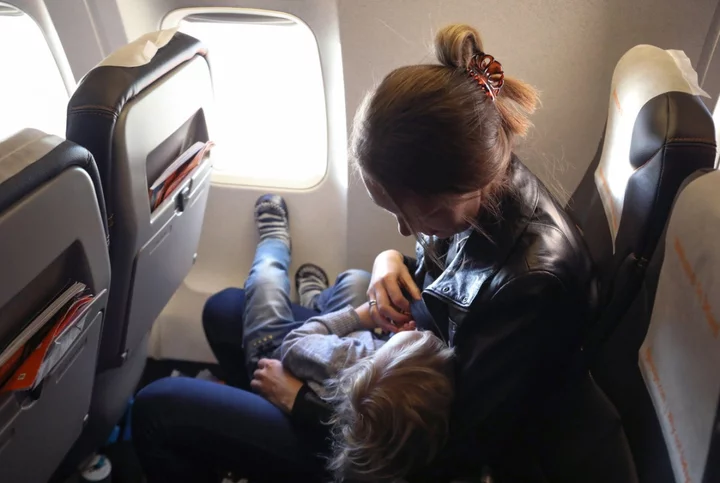
Woman says she was told not to breastfeed on flight because it would make passengers ‘uncomfortable’
People are coming to a woman’s defence after she claimed that she was told not to breastfeed on a plane because it would make other travellers “uncomfortable”. Chelsea Williams took to Facebook on 7 August to describe what she says was her experience with TUI Airways, a British airline owned by the TUI Group. She claimed that while she was in her seat during a recent flight and breastfeeding her child, one of the plane’s crew members told her to stop. “During our outbound flight I was told I was not allowed to breastfeed (even though we were both buckled) during takeoff and landing,” she wrote. “I have never had this with other airlines, in fact, it is encouraged to help with baby ear pain!” She then claimed that, after the experience, she was encouraged to reach out to TUI about its travelling regulations. “Before my inbound flight, I thought I’d check what the official rules were as I was shocked it wasn’t allowed as it left my baby screaming as a consequence,” she wrote. William’s post went on to include the message that her husband, Thomas, sent to TUI, asking if his partner could breastfeed their five-week-old baby while their plane is taking off and landing. According to the screenshot of the message, TUI then responded by encouraging Thomas’ wife to avoid breastfeeding on the plane, for the sake of other passengers. “There are no official restrictions, however, we would not recommend it because it could make other people uncomfortable,” the message read. Williams also added that the response from TUI was “complete discrimination and majorly disappointing”. Speaking to The Independent, Williams said that while on her first flight with TUI, the airline employee tried to “disguise the airline’s discrimination with the guise of a ‘safety issue’ but later retracted that”. “The cabin crew member said: ‘You’ll need to stop feeding as it is not permitted on takeoff and landing,’” she explained. “She then said my five-week old had to forward face, I said that she doesn’t have sufficient neck support at that age, which was answered with: ‘Maybe you could just sit her against you facing forward and lean back a bit.’” She also specified that, despite what TUI had allegedly told her husband in its message, she was able to breastfeed her daughter on her flight back home. Her Facebook post has since gone viral, with more than 1,200 reactions. In the comments, many people have gone on to defend Williams while criticising TUI for its “damaging” message about mothers breastfeeding in public. “Oh TUI - it’s damaging comments like this that can deter women from breastfeeding or breastfeeding in public,” one person wrote. “What’s so offensive about feeding a baby and if people are uncomfortable about a baby feeding in the most natural way by milk that is designed for HUMANS then that is their issue not hers or her baby’s fault.” “If other people are allowed to eat and drink in public then why is breastfeeding our children not allowed. What a disgusting response!!!” another added. “To all the breastfeeding moms out there, keep going. We’ve got this. Screw what other people say and think. Just smile at them and carry on, that will make them uncomfortable!” “This is absolutely disgraceful!!” a third wrote. “I am flying with TUI next month and have every intention of breastfeeding during take off and landing whether anyone feels ‘uncomfortable’ or not!” TUI has since responded to the comments on Williams’ post, with the company stating that it is “aware of the situation and are conducting an internal investigation”. TUI also added that “breastfeeding is permitted” on its flights, while the company “advises against it during takeoff and landing for safety reasons”. According to the Centers for Disease Control and Prevention, mothers are encouraged to breastfeed their children “during takeoff and landing when travelling by airplane,” as “this will help to protect your child from ear pain due to cabin pressure changes”. The health agency also encourages mothers to feed their children “on demand,” noting that the best way for them to “maintain [their] milk supply is to breastfeed whenever [their] baby is hungry”. Speaking to Metro, Williams opened up about the breastfeeding incident during her first TUI Airways flight, which was from England to Spain. She said that after she stopped breastfeeding, after the airline employee had asked her to do so, her “baby was obviously crying”. “Quite drastically because I had cut her feed while she was in the middle of it - and the toddler was crying,” she added, referring to her two-year-old child. “I was sweating, I was on the verge of tears. I felt like everyone’s eyes were on us because obviously the baby was screaming and I obviously looked not great at that moment. The baby’s cries were getting worse – she was obviously in pain, she was obviously hungry as well.” Williams said that she waited until the seatbelt lights went off to start feeding her baby again. In a statement toThe Independent, TUI said: “We are really sorry for the distress caused to Ms Williams and her infant. As a family friendly travel company we support breastfeeding on our flights at any time. We will be making sure that all colleagues are retrained on our breastfeeding friendly policy.” Williams told The Independent that she “had a call with TUI” and talked to the company about some of the changes she hopes to see implemented. “They did sound receptive to some of the points raised, I will continue to push them to ensure these changes are made,” she said. Read More Breastfeeding Olympians want it all: Top careers and motherhood Ireland Baldwin reveals why she did not want to breastfeed her daughter after giving birth Couple flies abroad for day trip after they find flights are cheaper than train to London Americans spark backlash after claiming that Europeans ‘don’t believe in water’ Grimes says her and Elon Musk’s three-year-old child X ‘knows a lot about rockets’ What is TikTok’s ‘soft life era’ and could it be the secret to happiness?
1970-01-01 08:00

Grimes says her and Elon Musk’s three-year-old child X ‘knows a lot about rockets’
Grimes has opened up about raising her children with ex, Elon Musk, with the musician revealing that their three-year-old son “knows a lot about rockets”. The singer, 35, spoke candidly about co-parenting with the Tesla CEO during her cover story interview with Wired, published on 8 August. Along with their three-year-old, X Æ A-12 - who goes by “X” - the former couple shares a one-year-old daughter, Exa Dark Sideræl, who goes by “Y”. While speaking to Wired, Grimes was asked about Musk’s “weird kind of protégé thing going on” with their son, as he’s taken him to “meetings” and work events before. However, Grimes said that she’s “here for that” relationship between the father and son, before explaining that they share common interests. “X knows a lot about rockets,” she said. “It’s crazy. He knows more about rockets than me.” She then specified that she and Musk have stopped giving X toys, since he “gets upset” if “they’re not anatomically correct”. However, the singer confessed that she’s been a little worried about her son’s interest in space, as she described his reaction to the Starship rocket exploding earlier this year. “He’s a little engineer, for sure. But his obsession with space is bordering on: ‘Is this healthy?’ When X saw Starship blow up, he had, like, a three-day PTSD meltdown,” Grimes recalled. “Every hour, he was waking up and going: ‘Starship …’ and I had to rub his back.” Grimes - who announced her split from Musk in 2022- shared that her daughter is “a little engineer too,” explaining: “She likes industrial shipping. She’s very strange.” As she continued to open up about co-parenting with her ex, she said that she’s “trying to find a great peer group,” or “other parents who are sort of like us and share similar values”. She went on to speak candidly about the different boundaries she wants to set as a parent. “I really care about having a very good relationship with my kids. I think I understand how to be a good parent to them,” she said. “Both enforcing discipline and being their friend. Who knows, maybe they’ll resent me and reject family culture, but I feel like they will not.” She also confessed that she’s “a little bit” worried about her children’s privilege, as their father holds the title as the richest person in the world. “I think their life is gonna be pretty intense,” she said. “Being Elon’s kid is not the same as being anyone’s kid. In my house, at least, I want it to be more of a crazy warehouse situation and a cool art space.” Grimes and Musk first met in 2018 when he direct messaged her on social media, where they then made the same pun about artificial intelligence. In September 2021, Musk revealed to Page Six that he and Grimes have “semi-separated” due to conflicting schedules and locations. Two months later, the pair welcomed their daughter together via surrogate. After the announcement made headlines, Grimes told Vanity Fair in March 2022 that she and Musk have a fluid, inexplicable partnership. However, she later made a clarification about the comment on Twitter, noting that while she and Musk had broken up since welcoming their daughter, “he’s my best friend and the love of my life”. Elsewhere in her interview with Wired, Grimes acknowledged that she’s learned a lot from her ex, specifically when it comes to leadership skills. “I learned from him, like, the best internship ever. People don’t like talking about Elon, but it was incredible to be right there watching all that SpaceX stuff happen,” she said. “That’s a master class in leadership and engineering and makes you understand how rare it is to have a leader of that quality.” Grimes continued to praise Musk’s management skills, adding: “Elon has an old-world kind of discipline I really respect. And I think it rubs a lot of people the wrong way. They don’t want to be in that hardcore zone. If you’re not consenting to being in that hardcore zone, I get it.” She also specified that Musk has “challenged” her a lot, and taught her about running her own company and team. When asked what her ex learned from her, she said that she’s helped him “have more fun”. “I try to soften him up, to build family culture,” she said. “And he steals a lot of my memes.” Read More Elon Musk gave Grimes a ‘trivia test’ on Lord of the Rings when they first started dating Grimes criticised for remarks about Lizzo accusers Grimes weighs in on alleged cage match between Elon Musk and Mark Zuckerberg Elon Musk gave Grimes a ‘trivia test’ on Lord of the Rings when they started dating Grimes weighs in on alleged cage match between Elon Musk and Mark Zuckerberg Mark Zuckerberg reveals his 4,000 calorie diet and large McDonald’s order
1970-01-01 08:00
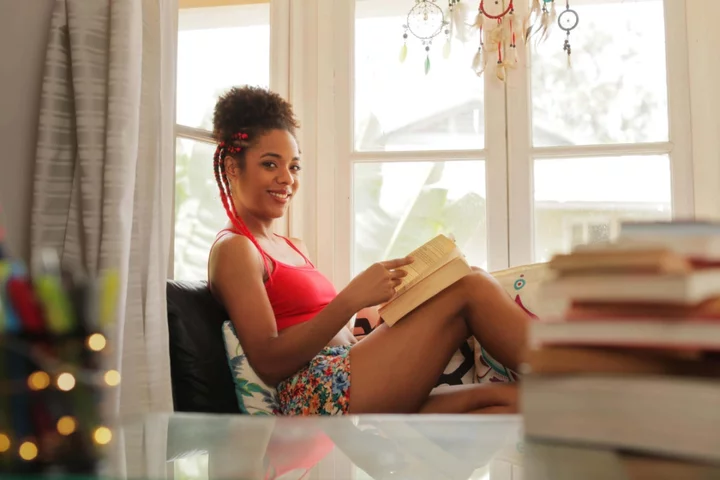
What is TikTok’s ‘soft life era’ and could it be the secret to happiness?
The term ‘soft life’ is trending on TikTok, with the #softlifeera tag clocking 12.2million views. While not brand new, it seems a growing number of social media users are leaning towards the lifestyle concept – but what does soft life actually mean and how can it benefit people? Where does the trend come from? As the wording suggests, soft life is all about veering away from stress and struggle and embracing a more easy and enriched life. But this isn’t just about life looking ‘perfect’ on social media. “Soft life isn’t new, however I’m really grateful to see its resurgence,” said Chlöe Pierre, founder of wellness platform thy.self and author of Take Care: The Black Women’s Guide To Wellness. “Essentially to me, especially as a black woman, soft life is about making choices that can avoid me having to live a much longer, and unsustainable, life in hardship. For me it’s about wellness in general, and sustainable wellness. “My only concern when seeing trends [on social media] is that they are inclusive, and generally they aren’t. First and foremost, soft life is a choice – and it’s a privilege to be able to make that choice,” Pierre added. “Originally, the soft life kind of movement had origins in places like Nigeria and other places around the continent, but was popularised via America and a lot of African American women, [who were often] fictional characters on TV. Because there weren’t, especially not in the UK, reachable or visible representations of black women and women of colour that had amassed a wealth, and therefore the privilege of living a ‘soft life’.”Permission to live a soft life For Dr Evelyn Okpanachi, author of The Emotionally Empowered Woman, it makes sense people are increasingly leaning towards the trend. “Collectively, we are still tired. We have had the Covid era, austerity and more, and we simply want to live and breathe a little. This is why we are leaning towards it more right now. Collectively, we are breathing a sigh of relief,” said Okpanachi. “Most people associate the soft life with booking last-minute flights, mojitos on the beach, dining at nice restaurants and all of the externalities. It is in part, but it a lot deeper than that. “Soft life is living life on your terms. Creating a career you want, the business you want, and looking after yourself holistically. This starts with empowering yourself to succeed by elevating your mindset and knowing you deserve to live a soft life.” Nothing comes easy Okpanachi noted the work that can be involved, however. “In order to enter the soft life era, the average person tends to go through an element of stress. Nothing comes easy,” she explained. “It is essentially about purposely creating a lifestyle with minimal stress and setting boundaries – boundary setting is key. It’s embracing the things that serve you and letting go/eliminating the things that don’t. We all deserve to live a soft life, and we all should. But we have to put the work in to attain it.” This is something social media can often miss out. As Pierre noted, influencers or celebrities may “show you one side of their life – you don’t get to see the struggle they have had to get to that point, or to maintain that lifestyle they have in front of the camera”. Making space for a softer lifeFor many, the dilemma is making these things a reality when work takes up so much energy, along with caring/parenting duties, health challenges and everything else. Pierre discusses in her book about how our identities can be “very wrapped up” in work, which can make it so much more draining – especially for black women who have faced “more hardship in the workplace, compared to other demographics”. Setting “clear expectations and intentions” for yourself can be helpful, she added, and getting to know yourself better. “So making clear expectations about who I am, what I will accept, and what I want – and having the belief that I don’t have to go through too much hardship, that it’s not a benchmark for who I am,” Pierre explained. “This can even be applied to dating.” Ditch the guilt Donna Noble, yoga teacher and author of Teaching Body Positive Yoga: A Guide To Inclusivity, Language And Props, also believes making things intentional is key for how people can embrace the soft life in their everyday routines. “[People] can prioritise their me-time and be intentional about it – for instance, meditating, journaling or doing yoga as soon as they get up (before the rest of the world invades their space), as this will set you up nicely for the rest of the day,” said Noble. “I believe rest and self-care are part of our birth-right – no feeling guilty for just being and not doing. Normalise taking the pause, and that it can be the most powerful thing we do in our day.” For those who struggle to put themselves first, Noble suggested taking time to work on giving yourself permission. “The key here is a shift in perspective and empowerment – you’ve got to discover the precious gem that is your wellbeing. Society’s old scripts may try to hold us back, but rewriting the narrative is where the magic happens,” she said. “Giving ourselves a permission slip to prioritise self-care isn’t just a luxury; it’s a necessity. It’s about understanding that nurturing ourselves isn’t selfish; it’s the foundation for health and wellbeing.” Read More Charity boss speaks out over ‘traumatic’ encounter with royal aide Ukraine war’s heaviest fight rages in east - follow live Kim Kardashian teased as the face of a major fashion brand Shoppers make seven big impulse buys per year on average – survey Even 4,000 steps a day could ‘reduce risk of death’ – study
1970-01-01 08:00
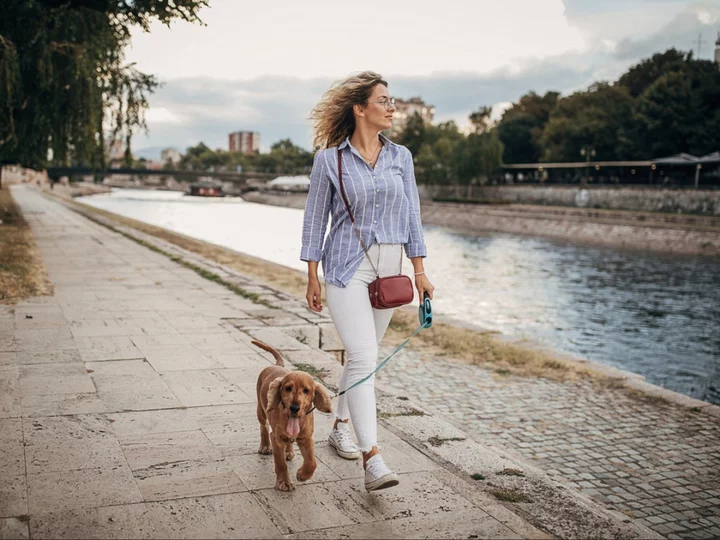
What happens when you hit a 4,000-step target each day
Just 4,000 steps a day could be enough to reduce a person’s risk of early death, according to a new study – but academics found people reap more health benefits from every additional step. Fitness trackers and smart phones mean that people are more focused than ever on achieving the lauded 10,000 steps a day. But the new study, published in the European Journal of Preventive Cardiology, found that the number of steps a person needs to walk each day to benefit their health could be lower than previously thought. Researchers found that walking at least 3,967 steps a day helped a person start to reduce their risk of dying from any cause. And walking at least 2,337 steps a day started to reduce the risk of dying from heart diseases. The study, the largest of its kind to date, did conclude that the more a person walks, the lower the risk of premature death. Even if people walked as many as 20,000 steps a day, the health benefits continued to increase, they said. They found that the risk of dying from any cause or from cardiovascular disease – diseases of the heart and blood vessels – decreases significantly with every 500 to 1,000 extra steps a person walks. Indeed an extra 1,000 steps a day was associated with a 15 per cent reduction in the risk of dying from any cause, and an increase of 500 steps a day was associated with a seven per cent reduction in dying from cardiovascular disease. Academics, led by Maciej Banach, professor of cardiology at the Medical University of Lodz in Poland, and adjunct professor at the Ciccarone Centre for the Prevention of Cardiovascular Disease, Johns Hopkins University School of Medicine in the US, examined 17 different studied with information on almost 227,000 people. People were tracked for an average of seven years. “Our study confirms that the more you walk, the better,” said Prof Banach. “We found that this applied to both men and women, irrespective of age, and irrespective of whether you live in a temperate, sub-tropical or sub-polar region of the world, or a region with a mixture of climates. “In addition, our analysis indicates that as little as 4,000 steps a day are needed to significantly reduce deaths from any cause, and even fewer to reduce deaths from cardiovascular disease.” “In a world where we have more and more advanced drugs to target specific conditions such as cardiovascular disease, I believe we should always emphasise that lifestyle changes, including diet and exercise, which was a main hero of our analysis, might be at least as, or even more effective in reducing cardiovascular risk and prolonging lives.” Dr Ibadete Bytyci, from the University Clinical Centre of Kosovo, and senior author of the paper, added: “Until now, it’s not been clear what is the optimal number of steps, both in terms of the cut-off points over which we can start to see health benefits, and the upper limit, if any, and the role this plays in people’s health. However, I should emphasise that there were limited data available on step counts up to 20,000 a day, and so these results need to be confirmed in larger groups of people.” Health officials in England previously urged people to focus on increase the pace of their walking, rather than just focus on the distance or number of steps. People should “focus on brisk walking, not just 10,000 steps”, according to 2018 advice from Public Health England and the Royal College of GPs. Read More Wilko isn’t just a shop – it’s a magical portal to essential British tat ‘Oblivious’ woman defended after walking through beach wedding: ‘They don’t own the beach’ Woman behind ‘not real’ plane tirade identified as marketing executive with $2m home Charity boss speaks out over ‘traumatic’ encounter with royal aide Ukraine war’s heaviest fight rages in east - follow live
1970-01-01 08:00

Ciara announces she’s pregnant with third child with husband Russell Wilson
Ciara has revealed that she and her husband, Russell Wilson, are expecting their third baby. The singer, 37, shared a black-and-white video to Instagram on 8 August to announce her pregnancy. In the footage, Ciara could be seen posing and dancing next to a pool, while showcasing her baby bump. The video is also set to her and Chris Brown’s new song, “How We Roll.” She went on to confirm that she’s expecting in the caption of the post, as she included some of the lyrics from her latest tune. “You look at me like that again, we make another kid…You my heart I’m your rib,” she wrote. In the comments of the post, many famous faces have gone on to celebrate the baby news, with singer Chloe Bailey writing: “YEEEESSSSS,” along with three heart eyes emojis. “OMGGG CONGRATULATIONS @ciara @dangerusswilson,” singer Normani added. “I am screaming for y’all.” “Congratulations Mama!!! Sending [love] to you and @dangerusswilson!” Lupita Nyong’o wrote. Many fans also took to the comments to praise the video, with one writing: “Now that’s how you announce a pregnancy…Omg!!!!” Wilson also announced the news on his own Instagram, where he shared the video of his wife and noted that he’s the one who filmed it. In the caption, he quipped: “That’s just ‘How We Roll.’” The “Level Up” singer and her husband are already the parents of two: a six-year-old daughter, Sienna, and a three-year-old son, Win. Ciara also shares a nine-year-old son, Future, with her ex, Future. The pair’s announcement also comes a year after Wilson opened up about wanting to expand his family. While Ciara was guest hosting The Ellen DeGenres Show, she brought her husband onto the programme, during which he asked her: “Can we have more babies?... Just give me one more at least.” After the singer responded by bursting into laughter, she told her partner – who she’s been married to since 2016 – she agreed to have more children. “We definitely can,” she said. “We have a little time before we get there…But I’m down to do it again with you.” Back in 2020, the NFL star made a different joke about having another child. In a video posted to Ciara’s Instagram, to promote her fragrance line, he told her: “You smell like you about to get pregnant again.” Meanwhile, the “Body Party” singer has continued to speak candidly about motherhood. During an interview with People earlier this month, she confessed that while she’s “getting better” at managing the chaos of back-to-school season, she still has a busy schedule, as a parent of three. “There are three kids, three of these precious, beautiful, turned-up-crazy, fun, amazing human beings that come with so much. It’s like, ‘Oh my Lordy,’ but you also find a way to make it work,” she said. “That’s the beauty of it all, it’s organised chaos.” She continued: “That’s how life is in general for us, so that’s nothing new, but during back to school, you’re really carefully running through lists and crossing your Ts and dotting your Is, because you want your kids to be set up for success and go in prepared.” Read More Why TikTok is going wild for lip oil Get ready for a SpongeBob and slime Super Bowl. CBS and Nickelodeon team up for NFL's biggest game Future disses ex-fiancée Ciara’s husband Russell Wilson in new track Francia Raisa says she has polycystic ovary syndrome: ‘Learning to live with it’ Raven-Symoné details cosmetic surgeries she had before she turned 18 What is ALS and what are the causes?
1970-01-01 08:00

USMNT rumors: Adams to United, Turner vs Arsenal, Balogun bid rejected
Today's USMNT rumors include Tyler Adams being linked with Manchester United. Matt Turner is set to play against Arsenal in his first game for Nottingham Forest and the Gunners have rejected a bid for Folarin Balogun.USMNT rumors: Tyler Adams to Manchester UnitedTyler Adams of Leeds United ...
1970-01-01 08:00

Francia Raisa says she has polycystic ovary syndrome: ‘Learning to live with it’
American actor Francia Raisa has revealed that she has polycystic ovary syndrome. The How I Met Your Father star, 35, shared an Instagram post on Monday (7 August) to celebrate the release of her friend’s book, Living With PCOS: Road To Reversal by Candice Craig. “My friend wrote a book about PCOS,” Raisa wrote in an Instagram Story to her 1.7m followers as she posed with her Craig. “I also have PCOS and still learning how to live with it. Thanks for this @candice,” she added in the next slide, photographing Craig’s book. Polycystic ovary syndrome is a common condition that causes irregular periods, difficulty getting pregnant and high levels of androgen hormones. The condition occurs when follicles (fluid-filled sacs) form in the ovaries. According to the NHS, PCOS affects around one in every 10 women in the UK and more than half of these women do not have any symptoms. Symptoms of PCOS usually become apparent in your late teens or early twenties, which also includes excessive hair growth, weight gain, thinning hair, oily skin or acne. While the exact cause of PCOS is unknown, the NHS says that it typically runs in families and can be related to abnormal hormone levels in the body, including high levels of insulin – the hormone that controls sugar levels in the body. While Raisa did not disclose any more information about her condition, the Grown-ish actor recently opened up about donating her kidney to Selena Gomez in 2017. Raisa reflected on her kidney donation during a recent appearance on the Good Guys podcast. Speaking to hosts Josh Peck and Ben Soffer, Raisa recalled how the medical procedure felt like the right thing for her to do amid Gomez’s lupus diagnosis. “I’ve said this before, but that was a time where I just felt it in my heart,” she said. “I knew I was a match. I knew it was going to happen.” Raisa emphasised that she was the one who chose to donate her kidney, adding: “No one forced me to do anything. It came out of the genuine kindness of my heart, and I’ve been super blessed ever since.” Meanwhile, the “Calm Down” singer has also opened up about her relationship with Raisa after the kidney donation. In a March episode of Apple TV Plus’s documentary series Dear…, Gomez explained how the How I Met Your Father star offered to donate her kidney. “My best friend. Her name is Francia. She said: ‘No, I am absolutely getting tested,’” the Disney Channel alum recalled. “And within three days, she went to get tested, and she was a match. And it was one of those moments where I felt watched over. I know I was so, so, so lucky.” Gomez added that Raisa “not even second-guessing [being] a donor” was “unbelievably overwhelming” and that she will “never ever, ever be more in debt to a person than Francia”. Raisa has previously tried to dispel rumours that the pair have been “feuding” since the donation, with the actor telling TMZ last month: “There no beef, guys.” Read More ‘Oblivious’ woman defended after walking through beach wedding: ‘They don’t own the beach’ King’s Guard shares sweet exchange with young boy wearing royal uniform Noah Schnapp fans perturbed by twin sister’s reaction to him coming out Raven-Symoné details cosmetic surgeries she had before she turned 18 What is ALS and what are the causes? Jonnie Irwin shares emotional milestone with son Rex amid terminal cancer diagnosis
1970-01-01 08:00

Raven-Symoné had ‘two breast reductions and liposuction’ before turning 18: ‘Will people stop calling me fat?’
Raven-Symoné has revealed that she underwent several cosmetic surgeries as a teenager, after her father encouraged her to do so while she was receiving criticism about her weight. The That’s So Raven star said she had two breast reductions and liposuction done before she turned 18 in 2004. Speaking on the latest episode of her and her wife Miranda Pearman-Maday’s podcast, Symoné recalled: “There was paperwork involved. My dad suggested strongly that I should get my breasts reduced. “He was like, ‘So you don’t feel bad, is there anything that you want?’ I was like, ‘Yeah, if I get lipo, will people stop calling me fat?’” She continued on The Best Podcast Ever with Raven and Miranda: “So I got a twofer. It was just a mess, just being that young and the pain of it all.” Symoné also disclosed that, after her first breast reduction surgery, she suffered a seizure. “I remember waking up and seeing everything… and then I just started to have this dry mouth and couldn’t breathe and went back under,” she said of the experience. The Cheetah Girls star said she does not remember much else because she was “disassociating” from reality, but admitted that not knowing what caused the seizure “freaks her out a bit”. She still went ahead with the second breast reduction. While she advised others who may be considering similar procedures to wait until they are fully developed before going under the knife, Symoné added that her decision to get breast reductions prevented her “t**ties reaching her ankles”. “I don’t know if I regret it because they grew back not to that big of a size,” she said. Last year, Symoné credited her wife with helping her “kick sugar”, which led to her losing 40 pounds (approximately 18kg). She told The View: “With [Pearman-Maday’s] help and guidance and love and fantastic cooking skills… she helped me kick sugar. “I say ‘kick sugar’ because it is an addictive drug and I was addicted to it in wheat form, in regular form. And it’s out of my system.” Receiving bad news about her health from her doctor also spurred Symoné to take her weight more seriously, so that she could be around longer to spend her life with her wife. “I want to be here for her as long as I can,” she said. “I found out some numbers at the doctor that were not pleasant for someone in my age bracket – or any age bracket, to be honest with you… She doesn’t want to take me to an early grave, and I want to make sure I am there for her in the best health possible.” In July, Symoné called on people not to use diabetes medication Ozempic purely for weight loss, as it is “made for certain people”. She opened up about her family’s history of pre-diabetes and diabetes, and said she is “more susceptible” to the disease if she is not careful about what she eats. “So, I think it’s very important we understand certain medications are made for certain people – and to not take that away just for glamazon purposes,” she told E! News. Read More ‘Oblivious’ woman defended after walking through beach wedding: ‘They don’t own the beach’ Men sometimes need help – and I’m determined to start asking for it King’s Guard shares sweet exchange with young boy wearing royal uniform
1970-01-01 08:00

How Star Wars boss Kathleen Kennedy found new use for rejected Kylo Ren costume
She loved the outfit and wanted to find it a place in the franchise.
1970-01-01 08:00
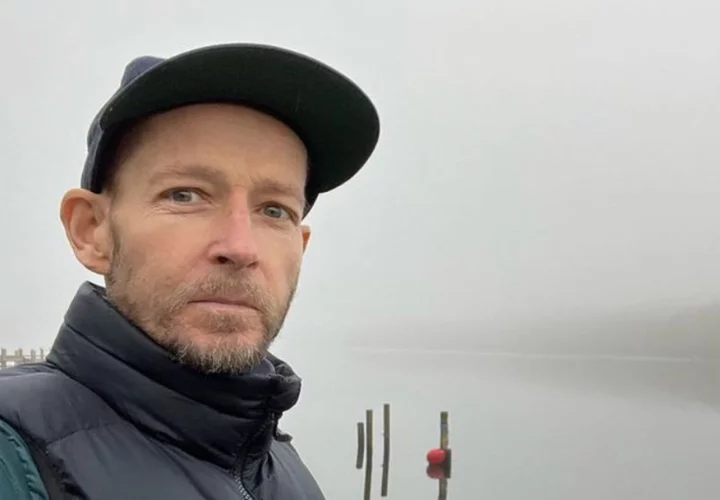
Jonnie Irwin shares emotional milestone with son Rex amid terminal cancer diagnosis
Jonnie Irwin has shared an emotional milestone as he cycled with his four-year-old son Rex, on what appeared to be Rex’s last day at nursery. The TV presenter, 49, who is best known for hosting property show A Place in the Sun and Escape to the Country, publicly revealed his diagnosis in November 2022 after his lung cancer spread to his brain. He has previously said he “doesn’t know how long” he has to live. Irwin, who has been receiving palliative care for the past three years, posted an update on Monday (8 August) as he accompanied Rex on his way to nursery. “Last EVER ride to nursery with Rex,” wrote Irwin in a new Instagram post, sharing a series of pictures of himself and Rex on their bicycles as Irwin’s two-year-old son, Rafa, played with a spade. “Suitably waved off by Rafa and his spade and Rex with his game face on!” added Irwin. Irwin, who shares his three boys Rex and twins Rafa and Cormac with his wife Jessica Holmes, detailed his experience of palliative hospice care in a recent interview with BBC Morning Live. The property expert described his hospice experience as a “delight”, adding that his initial perception of such facilities were that they were “very much a boiling hot room full of people who looked frail and towards the end of their days”. However, it was “nothing of the sort” when he did actually go in. “It’s spacious, energised, comfortable,” Irwin told the show, adding: “I’ve had a really, really good experience at my hospice.” He urged anyone who is facing a terminal diagnosis to “embrace” end-of-life care and to try going to a hospice if they have been offered the choice. “My first experience of palliative care and hospice was blood transfusions,” he explained. “I had my first blood transfusion in hospital and then was invited to use the hospice, so I have it a go as a day patient and went into a lovely room. “I implore people to check out hospices. If you’ve got the choice of using it, then use it… I encourage people to explore that option because it’s not the doom and gloom operation you might think it was.” Irwin recently revealed that sometimes he has to “remove himself” from his family home to go to a hospice when he is in a lot of pain because it makes him “not good to be around”. He told Hello! magazine: “I’m like a bear with a sore head and I don’t want [my family] to be around that.” In another appearance with podcast OneChat previously, he said that being in pain affects his mood, explaining: “I have been close to death’s door, twice at least. You lose your memory, you lose your patience. I have got a very short temper. It’s not made me a better person, that’s for sure.” Read More King’s Guard shares sweet exchange with young boy wearing royal uniform ‘Oblivious’ woman defended after walking through beach wedding: ‘They don’t own the beach’ Sandra Bullock’s sister praises actor for being an ‘amazing caretaker’ to late partner Bryan Randall What is ALS and what are the causes? Brain’s appetite control centre different in overweight or obese people – study Areas with lower bird diversity ‘have more mental health hospital admissions’
1970-01-01 08:00
